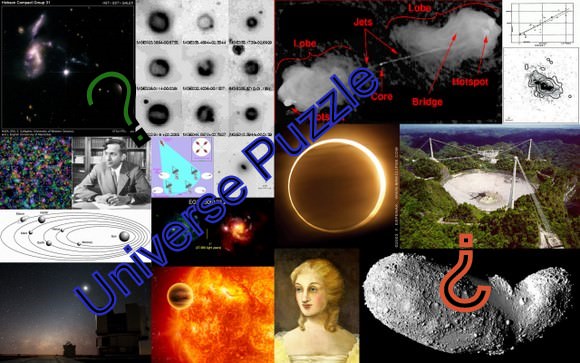As with last week’s Universe Puzzle, something that cannot be answered by five minutes spent googling, a puzzle that requires you to cudgel your brains a bit, and do some lateral thinking. This is a puzzle on a “Universal” topic – astronomy and astronomers; space, satellites, missions, and astronauts; planets, moons, telescopes, and so on.
What’s the next number in the sequence? 401, 172, 85.2
There are no prizes for the first correct answer – there may not even be just one correct answer – posted as a comment (the judge’s decision – mine! – will be final), but I do hope that you’ll have lots of fun.
Post your guesses in the comments section, and check back on Wednesday at this same post to find the answer. Good luck!
UPDATE: Answer has been posted below.
42.5 is the answer; it’s the mean orbital period of Io, in hours; the first three members of the sequence are the mean orbital periods of Callisto, Ganymede, and Europa (source)
Well done scibuff!
Check back next week for another Universe Puzzle.


Callisto: 16.689 d / 400.5 hrs
Ganymede: 7.154 d / 171.7 hrs
Europa: 3.551 d / 85.2 hrs
Io: 1.769 d / 42.45 hrs
using 3 significant digits the next number is 42.5
Mr Sci there has beaten me to the punch I am giving a Presentation on those Jovian wonders tomorrow. Those numbers spoke right up!
Geez! How do people get these things?
Am I the only one that doesn’t know by rote the orbital timings, axial tilts, revolution timings, dates of discovery, and exact atmospheric (or surface) composition for every object in the Sol system that’s larger than 10 metres in diameter?
I too am astonished that anybody can get these right or even take a reasonable guess. Congrat’s to those who get it right!
Exactly my sentiments gopher65.. I was abt to google these numbers when i decided to cheat by looking at the comments…I in no way would have come up with those after hrs of googling… :O
wot he said…
My first thought was it had to do with distances in AUs of the gas giants. That didn’t pan out, so I had to go back to work.
I may have eventually came up with these. After exhausting the gas giants and the rockies, the next group of four I could think of in the solar system would have been the galileans
@gopher65 – no, you’re not alone!
I’d like to note that I’m not requesting that the difficulty of these puzzles be decreased. I’m simply noting that I’m obviously not up to the challenge;).
I to, am not in the mathematical league of an astronomer. The planets, stars, nebulae and galaxies are cool to look at. I am way better at math and astronomy than the average denizen of this planet and have been able to independently answer two of these questions, but this one would have stumped me if I had seen it before it was answered.